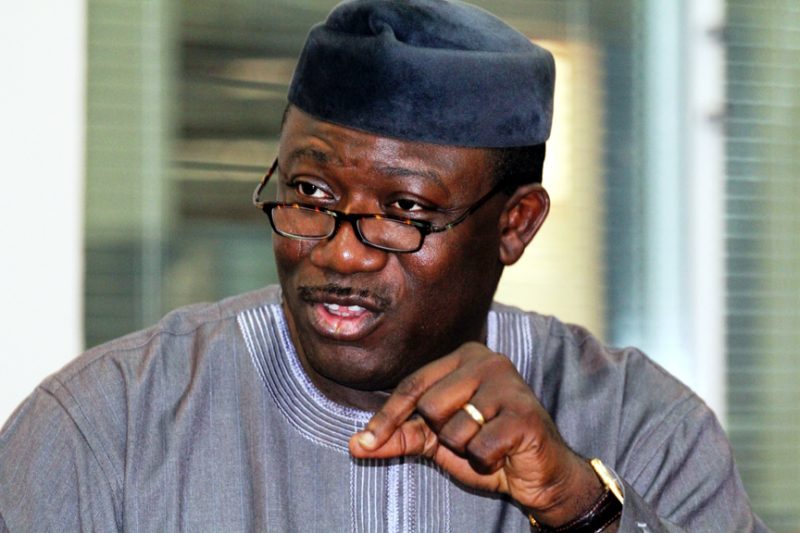Ekiti State Government has disclosed that the judicial panel of inquiry set up to investigate cases of police brutalities and rights abuses in the state would commence sitting on November 2, 2020.
The panel added that it would also hold closed door sittings for those who want their identities veiled during the panel’s sitting for fear of victimisation and other backlashes.
The State government had last week constituted a 10-man panel of inquiry led by a retired Judge of the Ekiti State Judiciary, Justice Cornelius Akintayo, to probe cases of police brutalities and right abuses in the state by men of the disbanded Special Anti-Robbery Squad, SARS.
Olawale Fapohunda, the attorney general and Commissioner for Justice, who briefed journalists in Ado Ekiti, on Monday, October 26, 2020, on the activities of the recently composed panel, said the sitting won’t exclude any member of the society and would sit for six months.
Fapohunda said in view of the enormous interest shown by the public about the panel, said the panel will give the public unfettered right to speak about their experiences for the state to ascertain the depth of the problem.
Speaking about how the modus operandi of the panel would be, the Commissioner said: “The process of submission of petitions had been liberalised and can be submitted through broad based government offices and avenues with letter carrying no strict format, it is just a complaint letter.
“The sittings of the Panel will be at the Fountain Hotel, Ado-Ekiti. The first public sitting of the panel will be held on November 2, 2020. The sittings will be open to the public as far as possible. Except in such instances where there is a need to protect the identities of victims or witnesses.
“It is not limited to victims of Police brutality alone. Members of the public and concerned Nigerians that knew how best to improve policing can give experts advice to the panel.
“The traditional rulers, councilors, chairmen of local government and other political appointees had been saddled with the responsibility of getting petitions from people in the rural areas for onward transmission to the panel for appropriate actions.
“There is opportunity for the protection of people who didn’t want to reveal their identities, because of the fear of backlash. The panel will make provision for such people.
“While the duration of the sittings of the Panel will be six months, the Chairman of the Panel will be expected to provide monthly briefings to the Honourable Attorney-General and Commissioner for Justice to further enhance the speedy consideration of all complaints”.
Fapohunda said the State Government had also established a Victims Compensation Fund to facilitate the speedy payment of monetary compensation to deserving victims.
“There have been some questions on the composition of the Panel. We have deliberately selected members of the Panel to reflect our peculiar situation in Ekiti State. It is no coincidence that we have a large number of youth representatives on the Panel. The presence of representatives of Access to Justice Institutions is also strategic.
“I should also state that the petition does not have to follow any strict format. A simple complaints letter, stating when and what happened to the Petitioner, where it happened, and identifying the violator will suffice.
“We deliberately located the Secretariat in the Department of Citizens Rights in the Ministry of Justice so that Petitioners can also get help with writing the petition.
“For example, we are aware of a number of persons that require help with medical costs. We can’t in all fairness ask these persons to wait for too long a period. In addition, without petitions the Panel cannot sit.”
Source: The Nation







